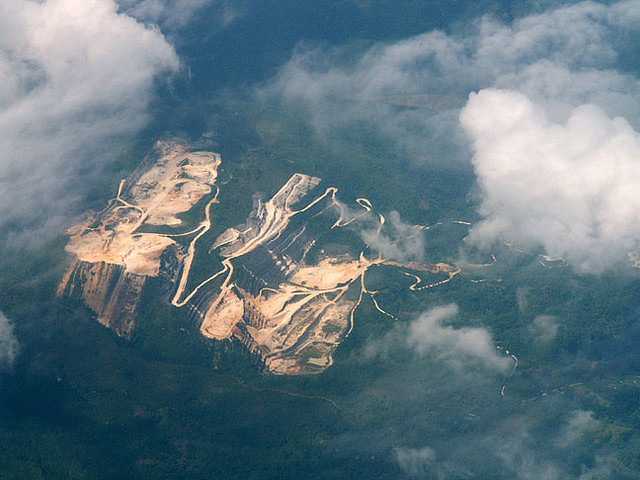Faith-based principles on actions of extractive industries
The following principles are promoted by the Extractive Industries Working Group, a coalition of faith, human rights, and environmental organizations concerned about the negative impact of extractive industries on the human and natural world.
The Maryknoll Office for Global Concerns is a member of the Extractive Industries Working Group, a Washington, D.C.-based coalition of faith, human rights, and environmental organizations concerned about the negative impact of extractive industries on the human and natural world. In June the group published the following principles related to work on extractive industries. The statement is open for organizational sign-on; contact Susan Thompson (Alliance for Justice/Medical Mission Sisters) to endorse.
As people of faith, working in the United States and abroad, we witness and support communities devastated by the irregularities of extractive ventures such as oil extraction, mining, and logging. We have seen that ill-conceived and poorly managed projects can bring conflict, damage human health, displace people from their homes and lands, pollute the environment, and feed corruption. Expanded exploration by extractive companies has weakened local economies, hindered development and curbed human rights, in the United States but even more so in Latin America, Africa, and Asia.
Our shared faith traditions call us to respect and defend all God’s Creation and to stand in solidarity with communities and workers who face possible displacement, loss of livelihoods and threats to their safety. These faithful efforts ensure the wellbeing of all, but especially the protection of society’s most vulnerable.
Some extractive corporations adopt policies that promote greater consultation with communities or consider more careful practices that do the least harm. Some companies have also joined and implemented a few positive initiatives such as: The United Nations Global Compact, Extractive Industries Transparency Initiative (EITI), Global Reporting Initiative (GRI), and Voluntary Principles on Security and Human Rights. However, much more must be done.
All governments, corporations, and financial institutions must consult impacted communities, including faith and civil society leaders, to reach joint agreement among all parties. Governments, international financial institutions, and corporations must also uphold standards of transparency and public accountability and governments must have environmental, financial, and judicial mechanisms to protect communities from harmful extractive projects.
We are committed to a reduction of the exploitation of God’s Creation but when these practices occur natural resource wealth should be used to improve the lives of those living in the local communities where the project takes place.
We encourage governments, international financial institutions, and corporations to stand firm in commitment with the following principles that will provide a better relationship with workers, citizens, and communities as well as ensure that the environment, human life and rights are respected.
We recommend those involved in the extractive industries adhere to the following principles:
1. Commitment to human rights and environmental justice
In compliance with the UN Declaration of Human Rights, extractive industries should respect and support the dignity of the human person, including the right to safeguard the global commons and sustainably develop natural resources.
Extractive industries should respect the rights of dissenting individuals and organizations to express their dissent through the use of protest, negotiation, and other nonviolent means.
2. Transparency and accountability
Policies and decisions about extractive industries should be transparent and should involve the meaningful participation of the most vulnerable stakeholders.
Extractive industries must advance the common good and be evaluated in the light of their impact on the environment as well as those who are most vulnerable such as: women, indigenous persons, and people who are impoverished.
Extractive industries should employ workers from the local community and help fund its social, education, and development projects to enhance the local and national economies and to ensure sustained growth.
Extractive industries should respect the role of legitimate governments, in collaboration with civil society, working together to set policies regarding the development and welfare of people and the natural world. In order to ensure restorative justice for affected families and communities, an independent third party must help resolve the grievances.
3. Conclusion
Local communities have a right to be consulted and heard in all natural resource exploration and development in their region. Therefore, extractive industries must adopt policies that mandate that they obtain comprehensive local community consent, Free Prior and Informed Consent (FPIC), before beginning any industry projects. This consultation includes communities’ rights to reject projects.
Endorsements (as of June 26, 2013):
-
Africa Faith and Justice Network
-
Columban Center for Advocacy and Outreach
-
Maryknoll Office for Global Concerns
-
Medical Mission Sisters Alliance for Justice
-
Missionary Oblates of Mary Immaculate Justice, Peace, & Integrity of Creation Office
-
Sisters of Mercy of the Americas Institute Justice Team
-
Sisters of Notre Dame de Namur Justice & Peace, Integrity of Creation Office
Photo: A mountain in the Philippines stripped for mining

